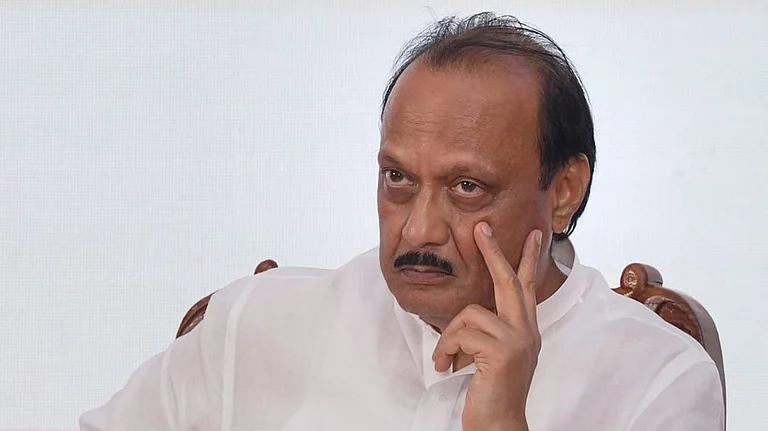“Life is a race … If you don’t run fast… you will be like a broken andaa…,” remarked Boman Irani aka “Virus” or Dr. Viru Sahastrabuddhe in an award-winning Bollywood comedy ‘3 Idiots’. While the dialogue was meant to evoke humour in the 2009 movie, but it resonates deeply in today’s high-pressure world where entrepreneurs and CEOs often prioritise success over health. The latest example is untimely death of Amit Banerji, cofounder of workspace management start-up ‘Table Space’.
His demise due to sudden heart attack at the age of 44 year has sent shockwaves through the business community. Banerji is not the only one who lost his life due to sudden cardiac arrest, there are other CEOs too. These include Epigamia’s Rohan Mirchandani, Pepperfry’s Ambareesh Murty, Royal Enfield’s Rudratej Singh, and more. Such deaths indicate a worrying pattern of stress-induced health issues due to prolonged working hours.
A recent study highlighted this pattern on a larger picture, nearly 43 per cent of early-stage entrepreneurs experience lower satisfaction compared to 59 per cent of experienced founders. Alarmingly, around 48 per cent of start-up founders reported low community support. These factors imbibe the feeling of isolation and stress among founders who are being hit by double whammy --- the pressure to show profitability to investors and scale their ventures.
The concerns are being raised at a time when toxic work culture has become the central point of many discussions, largely due to the work-like imbalance experienced by employees. The debate, in particular, started with Infosys founder Narayana Murthy’s ‘70-hour workweek’ statement that was supported by many executives including Shaadi.com’s Aman Anupam Mittal. However, Shark Tank judge Namita Thapar viewed it as a “crock of bullsh*t”, saying the debate must differentiate between founders and employees.
The discussion around work-life balance for employees has been around for a long, but for founders, it has largely remained in the shadows. Their struggle and immense pressure were overlooked behind the entrepreneurial success. But the recent deaths in the 40s and 50s have brought this issue to the front, acknowledging that founders too need support to handle the pressure of high-stakes roles.
Health First: Key for Sustaining Success
Since the Table Space CEO’s death news surfaced on the internet, the “health first” trend gained traction on the social media platforms. Even, industry experts believe that the entrepreneurial hustle is unsustainable in the long run. Edelweiss Mutual Fund CEO Radhika Gupta has rightly warned aspiring entrepreneurs regarding an ongoing trend in start-up ecosystem, urging them not to fall for it.
“There is now an increased air of start-up romance,” she said, while highlighting that the glorification of success often overshadows the immense difficulties and sacrifices involved. She suggested them to approach the start-up world with a realistic perspective. But the question arises, what about those who are already there?
Executive coaching, distributive leadership, guidance from experienced mentors, and regular breaks are some of the strategies that can help found to manage the entrepreneurial hustle and prevent burnout. “Coaching provides founders with something rare --- the chance to step back and reflect with a trusted sounding board,” The Core Questin CEO Shweta Anand Arora told Outlook Business.
During these sessions, the founders can ask themselves questions like what they value the most in life. What legacy do they want to leave? What supports them in achieving it? It brings clarity as well as a fresh perspective to focus on their energy which truly matters, said Arora.
On the other hand, Strength Masters founder Abhishek Joshhi recommended regular breaks and vacations for the long-term well-being of the founders. “Traditional theories also emphasised the importance of overall well-being for sustained productivity at work,” he said.
In addition, he asserted that peer networks in the industry can also offer founders a sense of camaraderie and the strategy to cope up with entrepreneurship challenges. International OKR Coach Suresh Mansharmani echoed similar sentiments, saying founders should seek guidance from experienced professionals in the industry to manage the crisis.
Among all these, one should not forget about the most-talked-about term “work-life balance”. The founders should maintain a balance between work and personal life, said Rising Star Communication CEO Durvesh Yadav.
“Having family support is also crucial to reduce work-related stress. There is a boundary between private and work life. Having a schedule more than work is important for a human being. So, the hustle culture should not break this wall. Also, the founder should follow the distributive leadership model and shift responsibilities to fellows,” he said.
Toxic work culture or immense work load is not good for anybody, be it an employee, founder, or any other c-suite leader. In 2021, the World Health Organisation (WHO) reported 745,000 deaths due to work-related stress globally. The number could even be more today, but there is no official data available yet. A collective effort by business coaches, life coaches, mental health start-ups, and even the one who is reading this story can build healthy work environments needed for a balanced life.
































